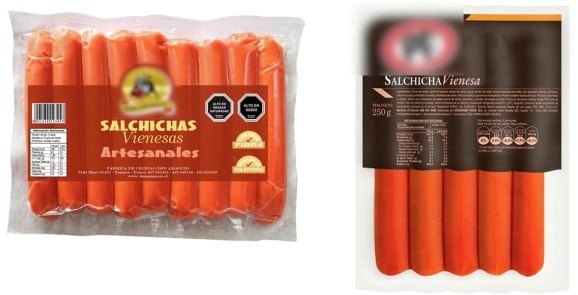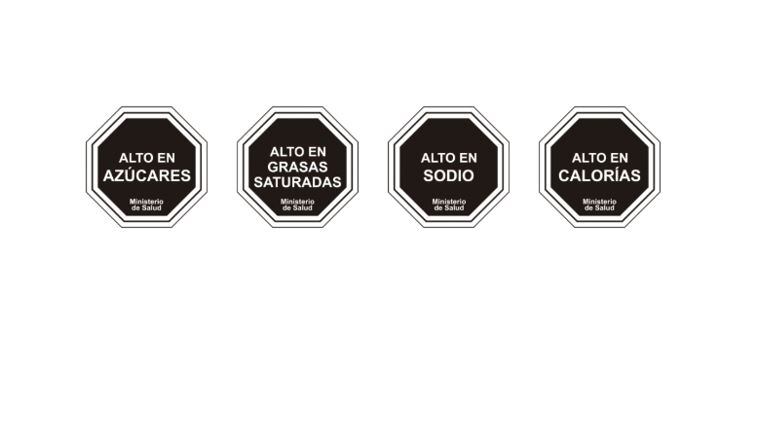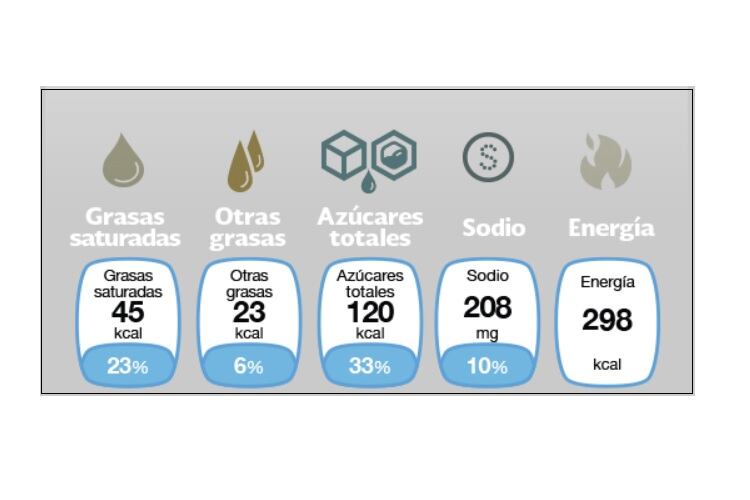In 2015, Chile included mandatory front-of-pack nutritional warning labels on packaged foods - part of a raft of measures aimed at reducing the country's rising obesity rates.
“Nutritional warnings are not expected to cause radical changes in consumers’ eating patterns," write researchers from La Frontera University in Chile in Food Quality and Preference. "Instead, they are expected to encourage consumers to select the most healthful option within a product category. [...] This policy offers the food industry incentives to reformulate their products, particularly if they are the first movers in the category.”
In a study published last week, the researchers therefore wanted to determine which type of product reformulation had the biggest impact on perceived healthiness and willingness-to-buy on frankfurter sausages: salt and fat reduction or an added fiber or low cholesterol claim.
Questioning nearly 500 Chilean adults in an online survey, they found that products without a warning label for salt or fat were seen to be the healthiest and had the biggest purchase intent. Artisan sausages were also seen as healthier compared to the industrial brand.
'Reformulate key nutrients'

“The results stress the need of food companies to engage in product reformulation strategies targeted at reducing the content of key nutrients associated with non-communicable diseases," conclude the researchers.
“On the contrary, other strategies aimed at increasing the content of positive nutrients in the product do not seem to have a relevant effect on consumers’ healthfulness perception and purchase intention of a relatively unhealthful product category such as frankfurters.”
In the survey, participants were given a choice between two sausage brands – a well-known industrial one and an artisanal brand - and were shown a variety of sausages. Some had warning labels for salt and saturated fat while others had the health claims ‘contains fiber’ and ‘reduced in cholesterol’. Reduced salt and fat levels were indicated by the absence of a warning label for these nutrients.
Under Chilean law, standard frankfurters must have nutritional warnings for high sodium and high saturated fat content.
Sodium and fat reduction had the largest effect size, causing an increase in purchase intention of 0.4 points in the 9-point purchase intention scale.

Reformulated frankfurters that had no nutritional warning for high sodium and saturated fat were seen as more healthful than those that had at least one warning, and also had a higher purchase intent.
Artisan healthier than big brands
Consumers also perceived the lesser-known artisanal brand to be healthier than the well-known industrial brand, which positively influenced the purchase intention.
"This may be associated with the fact that industrial food production has been associated by consumers with the use of artificial additives," the researchers suggest.
“One year after the implementation of nutritional warnings, Chilean consumers do not seem to have become desensitized and continue to consider this nutrition labeling scheme for making their food-related decisions.”
The high fiber claim had a "significant but small impact" on perceived healthiness and purchase intent while the low cholesterol claim had a minor effect on the industrial brand.
“This result can be explained considering that the presence of nutrient or health claims can lead to negative inferences about the taste and naturalness of products. In addition, consumers may have perceived incompatibility between unhealthful food carriers, such as frankfurters, and functional ingredients.”
Meanwhile, the health halo imparted by nutrient claims was not great enough to override the negative impact of a nutritional warning, the researchers found.
According to the study authors, Frankfurter sausages (known as salchichas Vienesas, or Viennese sausages in Spanish) are popular in Chile for their convenience and are particularly enjoyed by children.
Source: Food Quality and Preference
Published online ahead of print 31 January 2019, doi.org/10.1016/j.foodqual.2019.01.021
“How do consumers perceive reformulated foods after the implementation of nutritional warnings? Case study with frankfurters in Chile”
Authors: Berta Schnettler, Gastón Ares, Néstor Sepúlveda et al.




